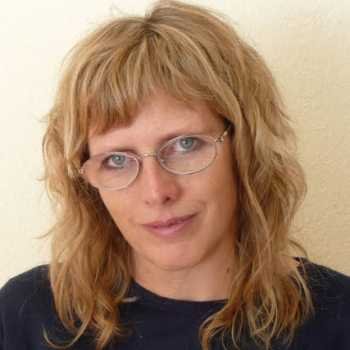One of a handful of in-person shows at this year’s Halifax Fringe Festival, Caravan Theatre tackles Sarah Kane’s 4:48 Psychosis before embarking on a tour to several other Nova Scotia locations.
The British playwright’s final play before she committed suicide in 1999 and first performed over a year after her death, it is often referred to as Kane’s suicide note. With no explicit characters or stage directions in its text, the Caravan Theatre production integrates movement into Kane’s poetic text, performed by Margaret Muriel Legere and Rebecca Wolfe.
With trigger warnings due to its subject matter, each performance will include a post-show conversation addressing issues of mental health, identity and inclusion.
In this Q&A with Caravan Theatre’s artistic director and director of 4:48 Psychosis, Kathy France, we find out more.
This interview has been edited.
Tell us about 4.48 Psychosis. What can audiences expect?
Audiences can expect a play that takes a deep dive into issues of mental health and suicide. Lyrical yet raw, grim yet humorous, the play beautifully expresses ugly truths: isolation, stigma, and the longing for self-esteem and community understanding. All our performances are outdoors, so expect some possibly chilly evenings as well.
What was it about the play that got Caravan Theatre excited about producing it?

I’ve always loved the play and been haunted by its mix of pared-down language and stark images. It’d been sitting on my bookshelf for years, but I was living overseas and felt the poetic text would best be explored back in Canada, with audiences that spoke English fluently. Once I came home, it kept surfacing in my mind as a “maybe I should do this play now.”
4.48 Psychosis can be a challenging play to perform as Kane wrote it without explicit characters or stage directions. How have you interpreted the play for this particular outing?
That’s the beauty of the play! You get to collaborate with the playwright, who has given you text but no staging directions. You can do it with 1 or 30 actors. You have to figure out where a scene’s action takes place, who might be saying a certain line, who the characters even are. We’re doing the play with two actors, Rebecca Wolfe and Margaret Muriel Legere. Much of the text feels like the playwright’s voice recounting her experiences with depression, but you can also hear the voice of a doctor. Our actors switch back and forth, sometimes sharing the voice of the playwright and sometimes taking on separate roles of doctor and patient.
It is also not a typical Fringe show. Why the Fringe?
It’s such a Fringe show, in my opinion! It’s quirky and non-traditional in form, has only one prop (in our staging of it,) and can be performed anywhere. True, it explores difficult, even taboo subjects, but this show has a real cult following around the world. And we’re performing it beyond the Fringe. We’re taking it on tour in early October to Truro, Wolfville, Chester and Lunenburg.
You are one of the few Halifax Fringe shows offering in-person performances. Why was it important to do it live instead of virtually?
The original plan was to perform in theatres, but then COVID hit, and it made sense to move it outdoors. So much of the play demands movement. It just wouldn’t work on screen. Physical theatre needs a live audience. Also, we wanted to explore how live theatre can be staged even in the midst of the pandemic.
For the Fringe, it will be performed at the Dartmouth Commons. Did the fact it will be performed outdoors create any challenges?
Well, there’s the weather! As I write this, Teddy is pounding outdoors, and we’ve had to move tomorrow’s rehearsal from our outdoor space to an indoor one. Also, all along our rehearsals have mostly been indoors in a dance studio, and then the shift to outdoor rehearsals against a landscape on a massive scale changes everything. You have to make adjustments to the background noise, the odd dog rushing over from the off-leash area, a plane going overhead.
What will surprise audiences the most about your production?
How uplifting and life-affirming the play is, despite its subject matter.
What do you hope audiences will walk away talking/thinking about?
We’d love to get them talking about stigma related to mental illness and suicide. About hope: where does it come from? How do you build hope at the individual and community levels?
4:48 Psychosis plays as part of the 2020 Halifax Fringe Festival at the Dartmouth Common on September 24-27. Visit halifaxfringe.ca for tickets and information or visit caravantheatre.ca for details on other performances.


